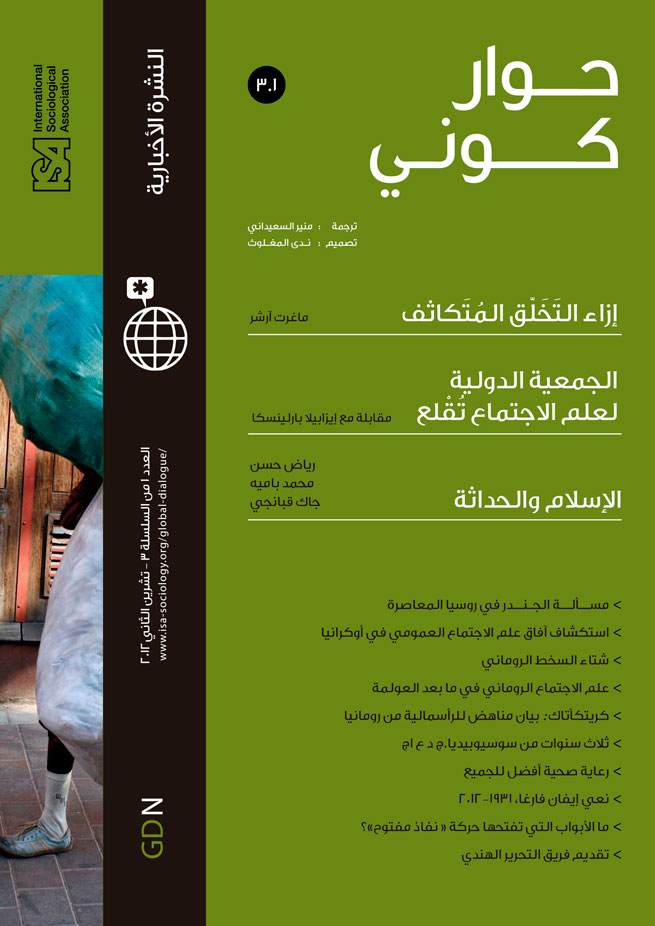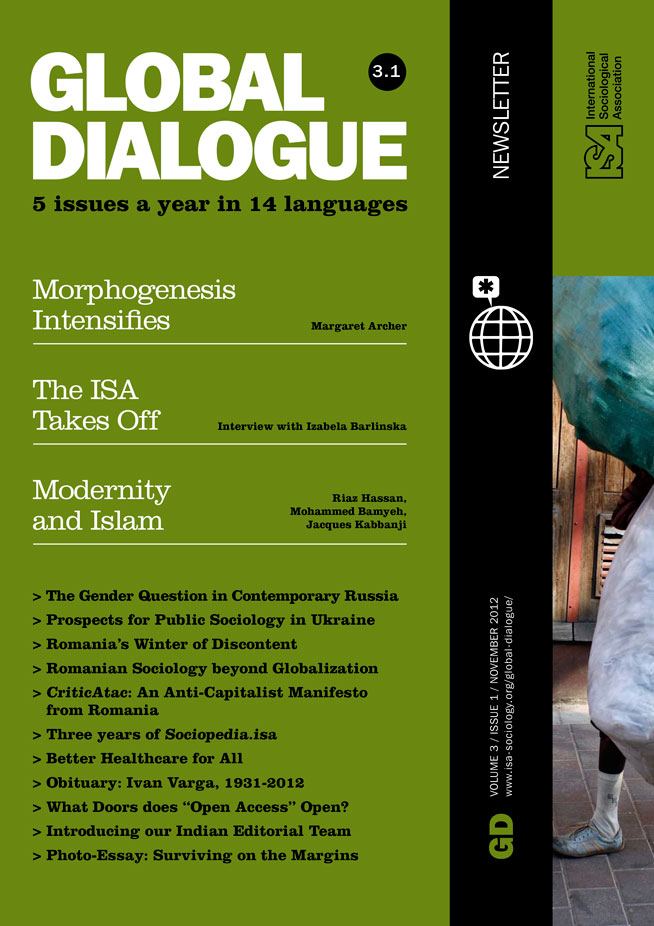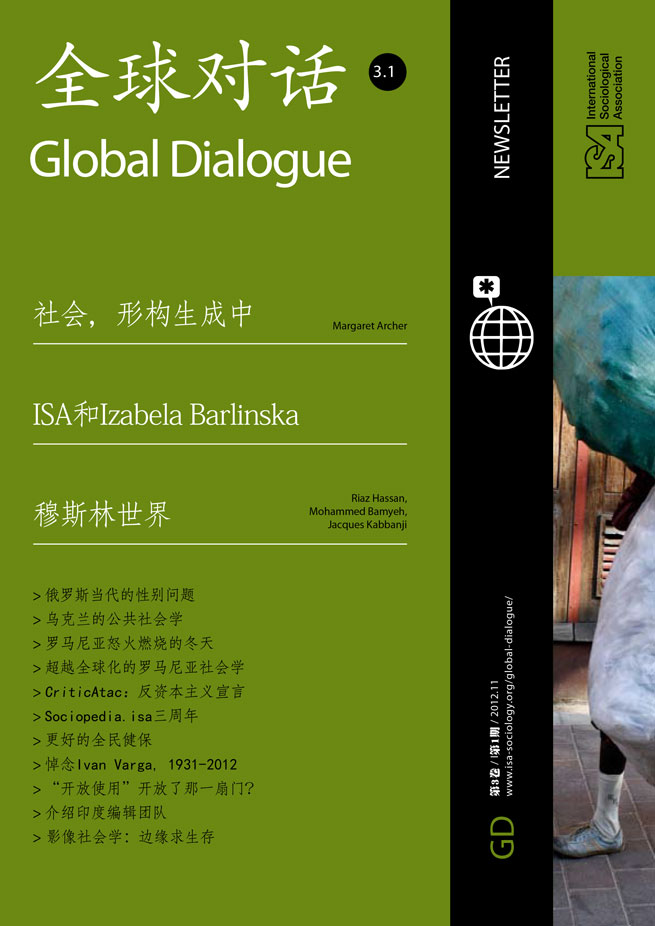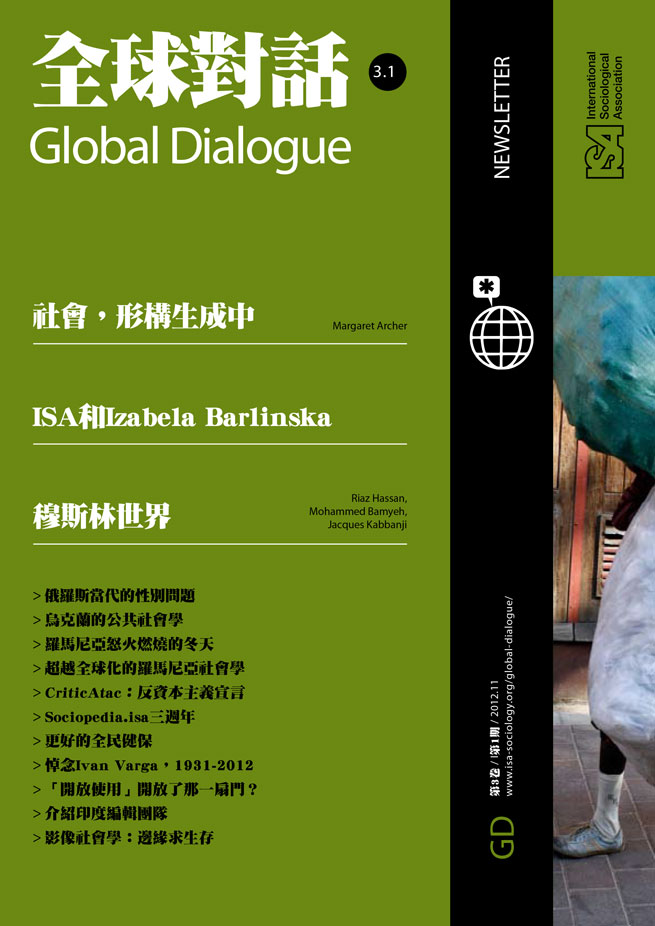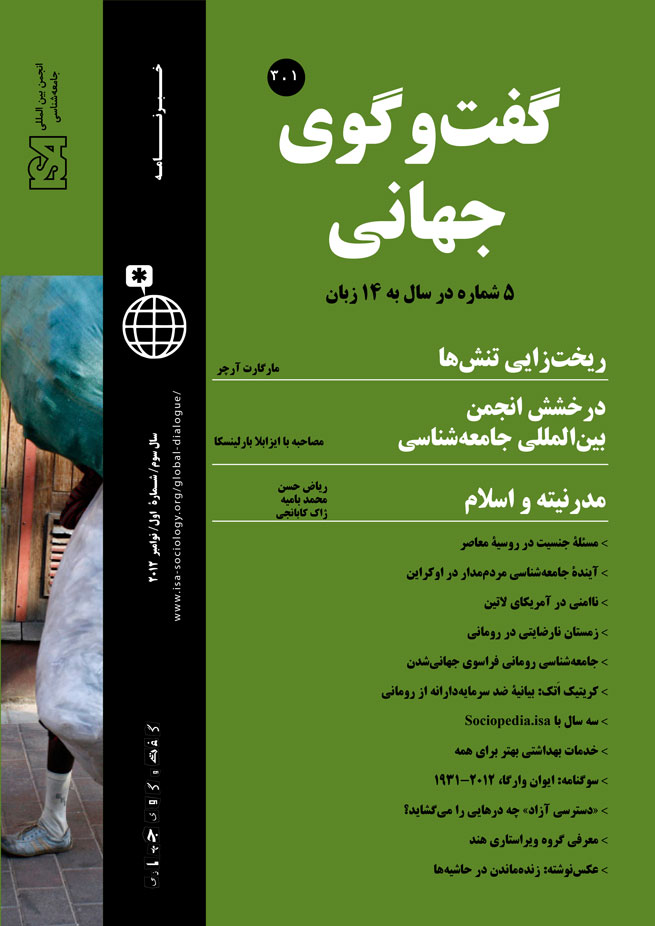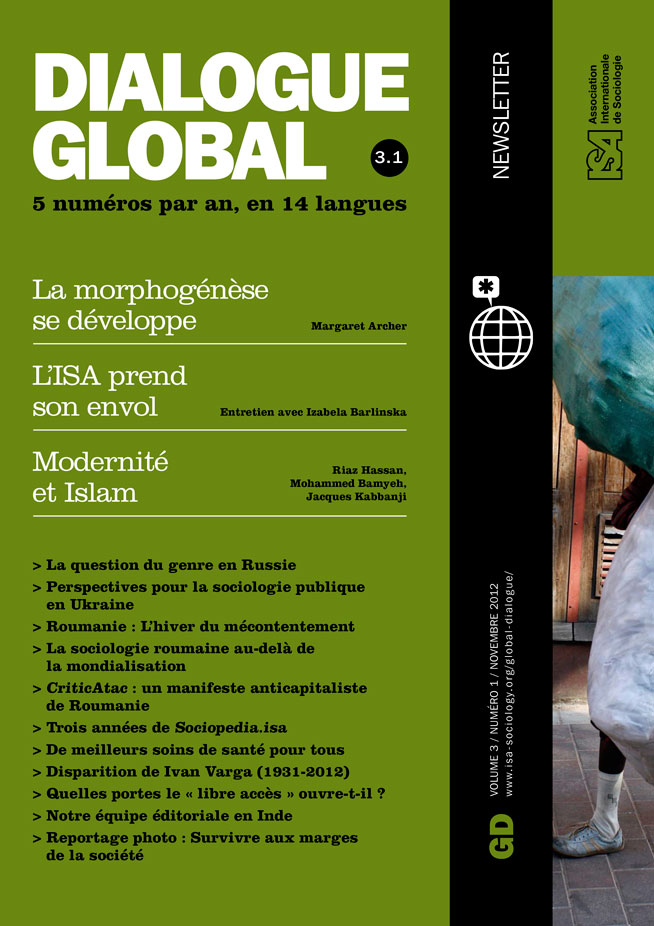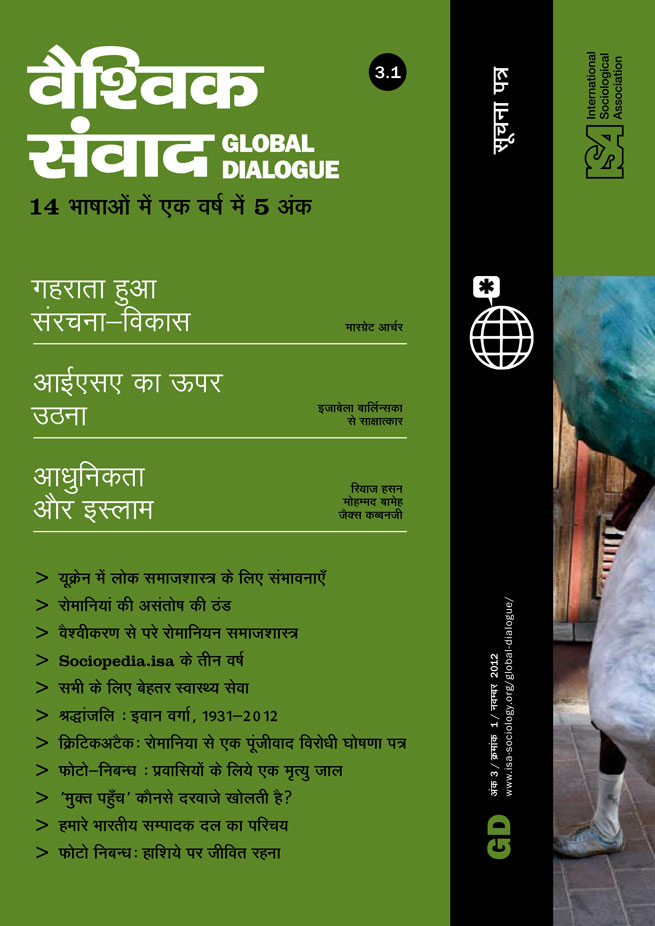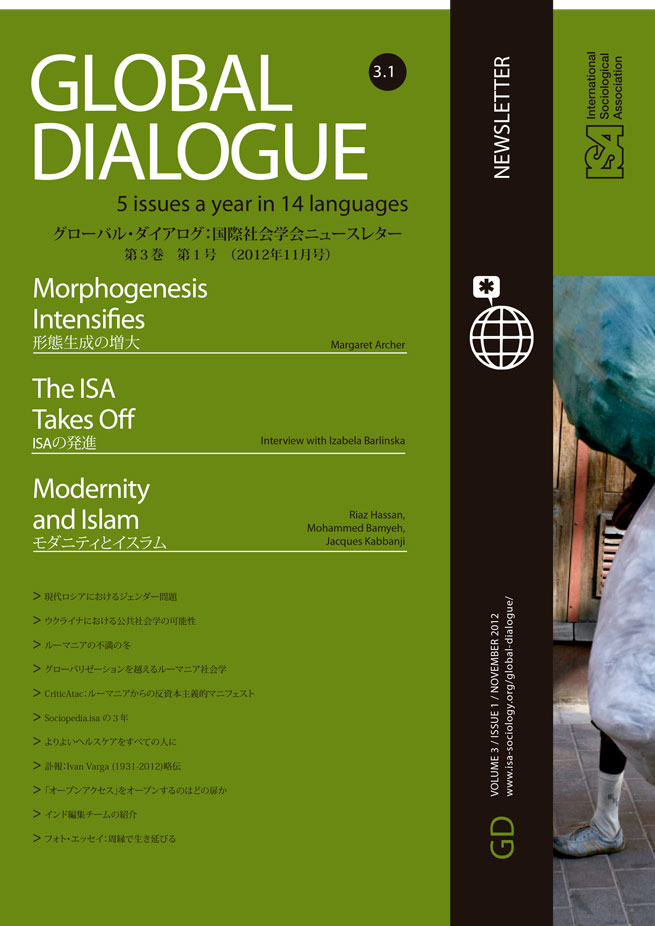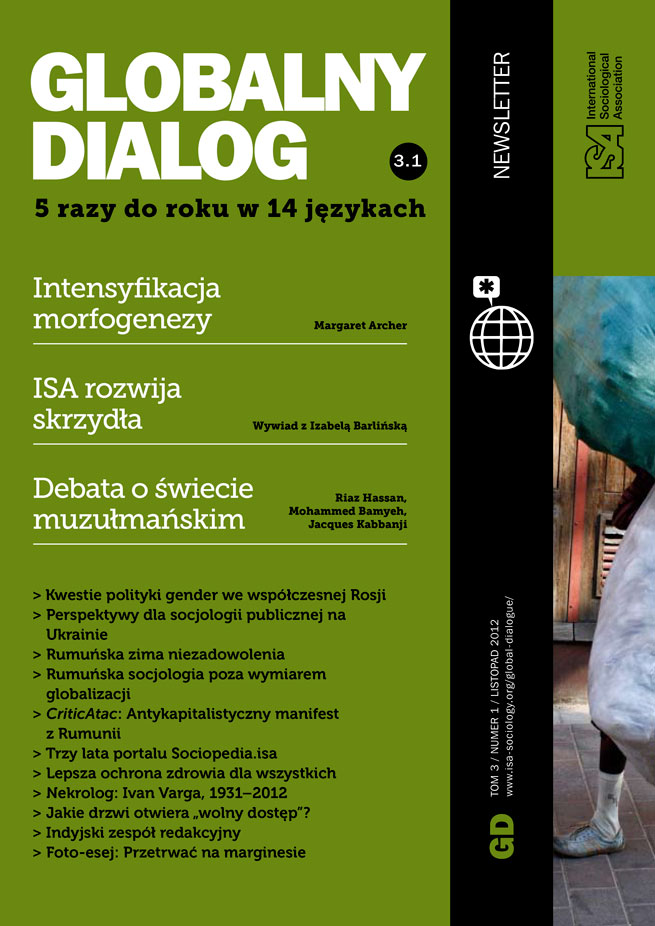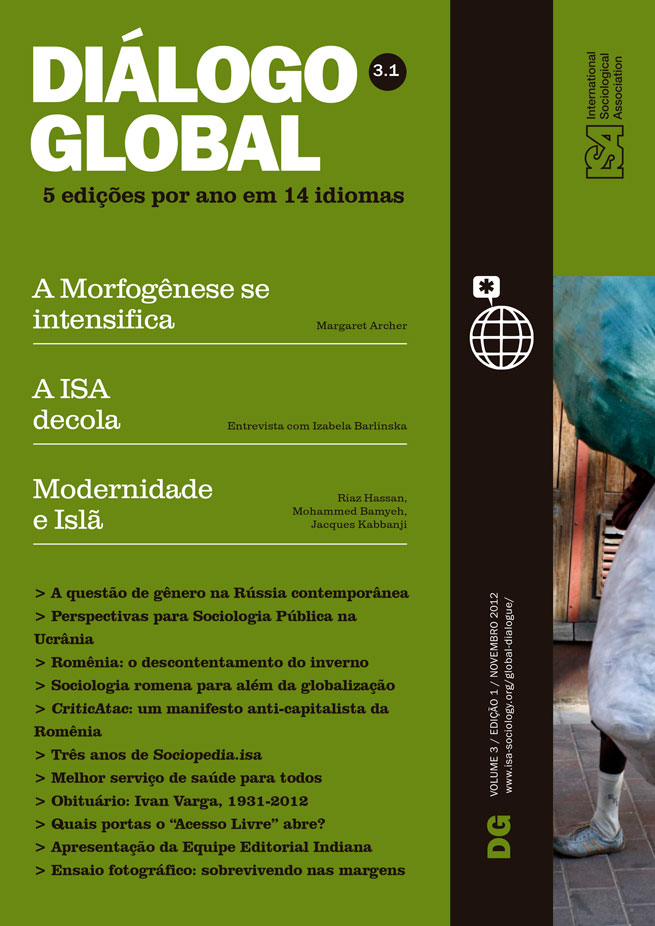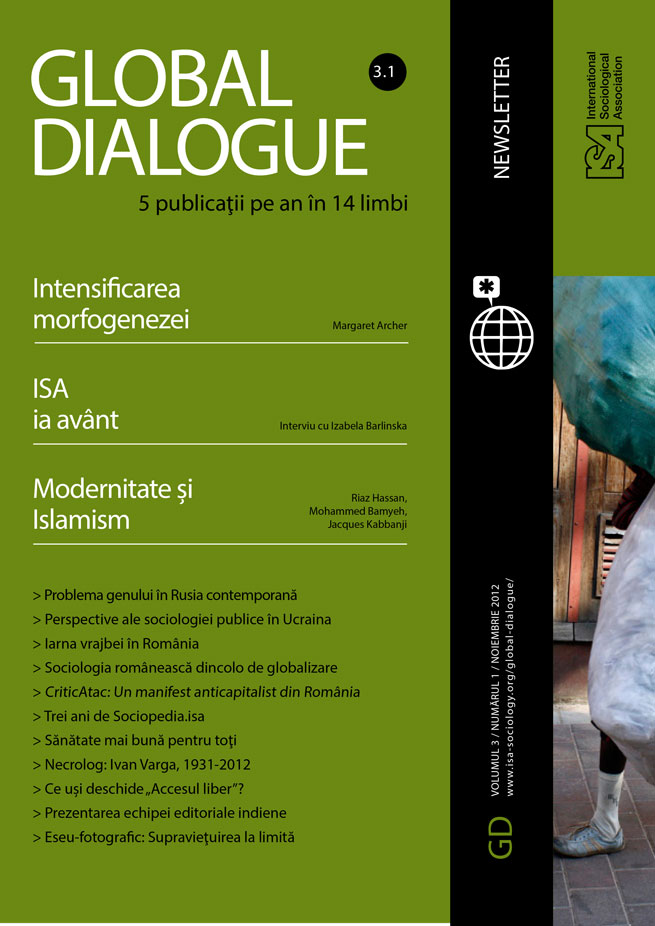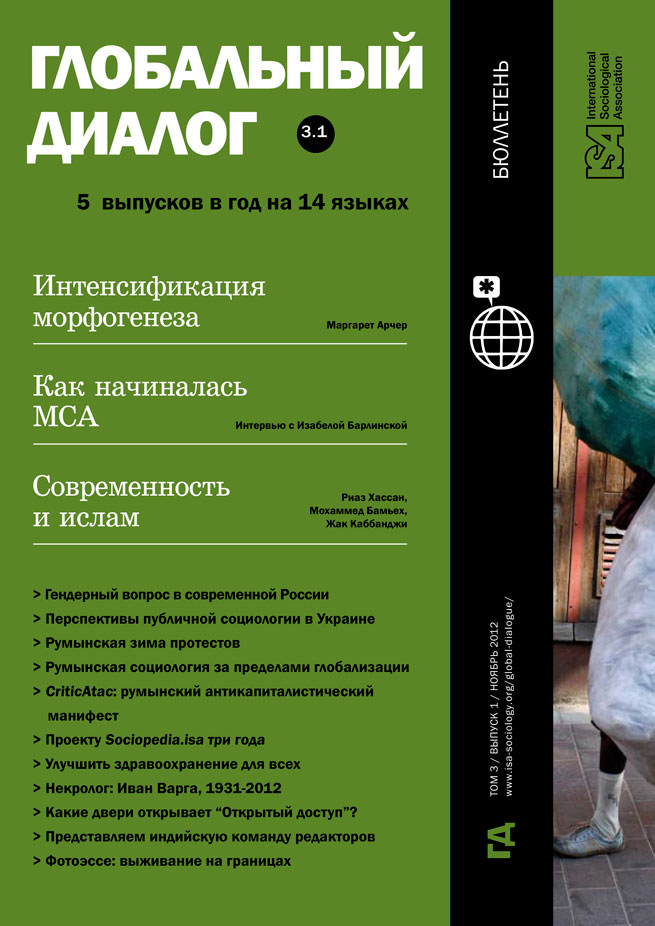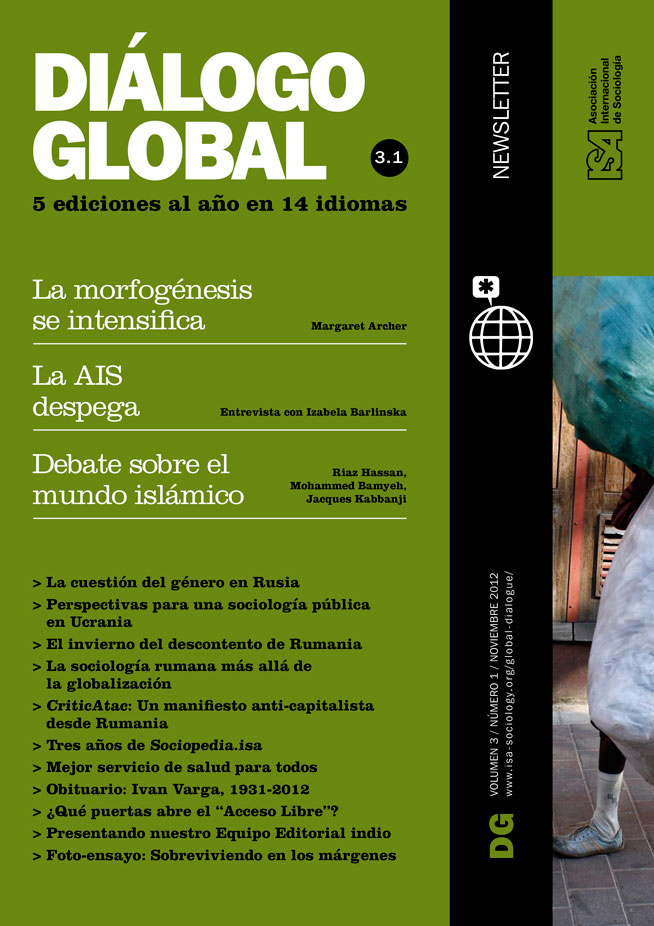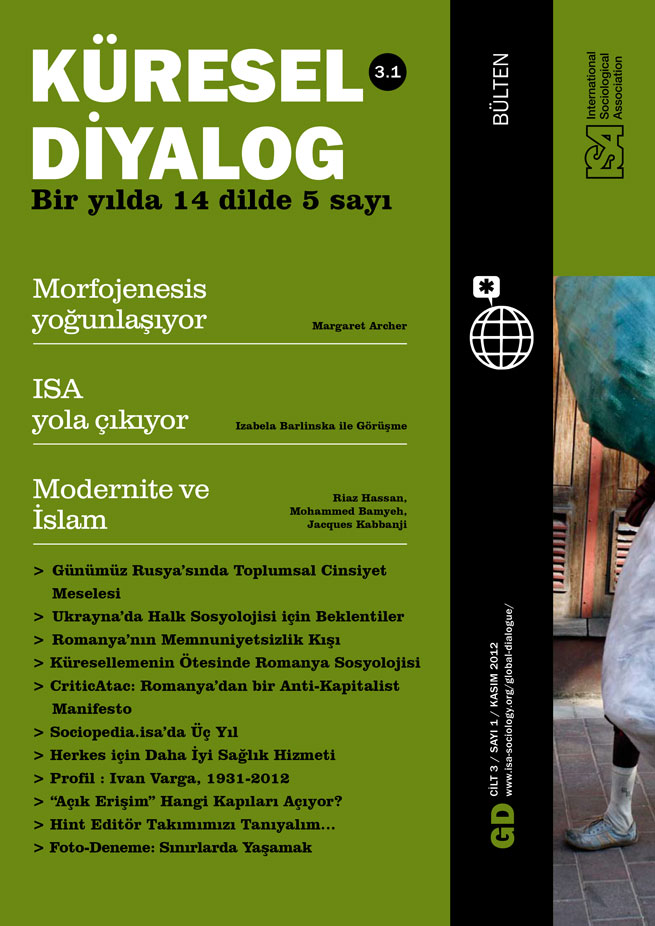Interview with Izabela Barlinska (Part II)
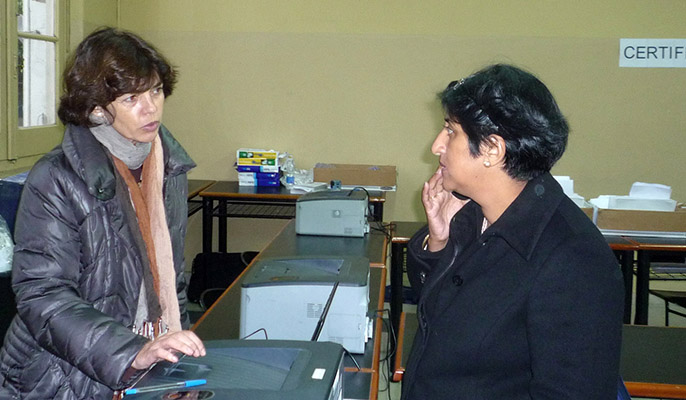
October 28, 2012
In the previous issue of Global Dialogue (2.5), we learned how a young Polish student was recruited to the ISA and how she became the indispensable organizing brain of the Association. In this second and final part of the interview, Dr. Barlinska tells us the story of the consolidation of the ISA into the powerful organization it is today.
MB: We left off the story with you in Amsterdam entertaining the famous writer, Ryszard Kapuściński. But, then, in late 1986 Fernando Henrique Cardoso, then ISA President, offered you the job of Executive Secretary if you would move to Madrid to set up a new office. And so that’s what you did?
IB: Yes, I arrived here in Madrid in January 1987, all by myself, not speaking a word of Spanish. I had to set up office. I guess you have to be young and inexperienced to take on something like that. I didn’t have much of an imagination of what it all meant. I arrived together with a big container, which had my suitcases and ISA papers, to occupy a place in the Spanish Academy of Sciences. ISA arrived at the invitation of the Spanish Minister of Education, but the offices the ISA was to occupy in the Spanish Academy of Sciences were not finished.
MB: You were completely by yourself?
IB: The only help I had was Sergio Contreras, a colleague from Chile who had also worked in the Secretariat in Montreal and Amsterdam. He came to help out because he spoke Spanish. The two of us were trying to open the office. It was tough. I learned my Spanish from building constructors. But the good thing was that I got to know the people in the Ministry of Education because of all the papers that had to be prepared to officially register the ISA. Since the secretaries were not able to speak with me in Spanish they would let me go to the bosses. So I got to know and built friendships with people in high positions in the Socialist government, I used to go trekking in the mountains with friends from the generation that was taking over power with Felipe González.
MB: For them you must have been quite a curiosity, coming from Poland.
IB: Poland was very famous in those days. Everybody understood the importance of Solidarity as a force fighting against an authoritarian regime, as they had done in Spain. So Poland, or at least the opposition, had a good reputation among those socialists.
MB: So basically you were on your own. Cardoso’s term of office had come to an end and then came Margaret Archer.
IB: Margaret was elected President in 1986 at the World Congress in New Delhi. She was the first and, so far, only woman President of the ISA. We worked together and built up a long-lasting friendship.
MB: So what was the most difficult challenge when you came here?
IB: It took time to settle in and organize the office in a new country. Once we touched ground, so to speak, we started organizing the 1990 World Congress of Sociology in Madrid. That meant a presence of a big contingent of Latin Americans with the consequence that Spanish finally became the third language of the Association.
MB: Only then? I thought it was in Mexico in 1982.
IB: Mexico faced the protest – everybody was protesting that the Congress was not in Spanish. But the recognition of Spanish happened much later. So it was as if a new continent was joining the ISA by the very fact that the Secretariat moved to Madrid. We didn’t have any fancy technology – the first computer was already in the office but it was all very, very different. And the difficulty here was that while, on the whole, Spanish location and people were most friendly to both the congress and the Association, there were however some Spanish people who wanted to… how shall I say… use the Association for their own career and their own ends. And that became quite unpleasant for everybody. I think ISA suffered. The Madrid Congress itself had a lot of tension and not only because it was held in three different buildings of the University Complutense in the boiling heat of Madrid, with no air conditioning.
MB: This was the Congress at which the Indian sociologist, T.K. Oommen, was elected President?
IB: That’s right. These election results brought real trouble for the ISA since some of the local sociologists were hoping a Spaniard would be elected as President. One of the unexpected consequences was that the ISA was crossed off the register at the Ministry of Interior Affairs where it was formally registered and then we were expelled from the offices at the Spanish Academy of Sciences. So for some time the office had to migrate to this very terrace where we are talking.
MB: So once again the ISA had to move – how was this resolved?
IB: Well, we were lucky that the Faculty of Political Sciences and Sociology at the University Complutense generously offered us an office. The support of Miguel Ángel Ruiz de Azúa, President of the National Union of Sociologists and Political Scientists, was inestimable. It was a good move in the sense that it is better for the Secretariat to be at the university. There are more colleagues – sociologists, students and an active academic milieu.
MB: But how did the ISA survive materially?
IB: You have to understand that ISA arrived in Spain on the invitation of the Minister of Education and the agreement was that the Secretariat would receive funding in the form of subventions from the Spanish government, as we had in Montreal and Amsterdam. And that’s how it continued in Spain for six years. The Spanish government was very generous. But then that money was finished. And there was a big conversation in the ISA – what do we do? And it’s not that there was any other offer in the wings waiting for our acceptance. At the same time the Internet appears, email appears. And then everybody realizes it doesn’t really matter where you are. So instead of moving it was decided we would stay in Spain. And we stayed. But mind you, since then, ISA operations have been absolutely self-financing.
MB: That’s impressive!
IB: The reason was good housekeeping and a very limited number of staff. Of course, in those days there were fewer activities and fewer members. But it represented a big change in the life of the ISA, because we stopped moving the Secretariat every four years.
MB: It also meant you could build up your own staff, too?
IB: Yes, indeed. Nacho (José Ignacio Reguera) has been with us since before the 1990 Congress. Again I met him through Polish connections. When we were at the Academy of Sciences I had a tiny little Fiat with a Polish registration plate. One day I found a little note on the windscreen, written in Polish: “I am a visiting professor from Poland in the Institute of Physics; maybe we can meet.” I say why not. It turned out to be Jacek Karwowski, professor from the University of Torun. We became friends immediately. With him, his friends and his family we went discovering Spain because, don’t forget, at that time, I thought I’d be in Spain only for four years. That’s how I found Nacho who was working in that same Institute of Physics.
MB: And he brought the ISA into the world of personal computers, email, and Internet?
IB: Nacho has been building the database for the ISA. He knows everything. He is very good, loyal, caring, and creative. An important acquisition for the ISA, especially in the modern world of computers and social media. I tell him what is needed, and he delivers. We are on the same wavelength.
MB: Perhaps, this is a good point for you to say something about the daily work of the Secretariat.
IB: The everyday routine is a tedious housekeeping, with a lot of details. But, as they say the devil is in the details. It might sound boring, but at the same time you should not lose the perspective.
MB : The perspective of…
IB: Of the Association, of where it should go and why people contact us, even if it is only to change an address. But it is crucial to update that address because on the following day we may get a request from another colleague who would like to get in touch with the author of an interesting abstract he has seen on the ISA Congress website.
MB: You’re putting everybody in touch with everybody else. I
B: Indeed, it’s an exchange network for many people which has been built thanks to a daily routine throughout many years. It includes now 5,000 active members plus another 3,000 contacts in the database. And then there is also a complex structure of over 60 Research Committees, Working and Thematic Groups, 60 national sociological associations, institutional members. It is a huge potential and it is important to use it and address it properly.
MB: What do you mean?
IB: ISA Executive Committee defines association’s goals and policies and the Secretariat has to implement them. One has to remember that most of our members are not native speakers of English so we’ve got to be careful in formulating the messages, in constructing the ISA website. The more technically sophisticated it gets, the more difficult it becomes to access in countries where electricity supply is limited. One should never forget about those differences and inequalities. It is indeed a very special feeling we have working in our small office in Madrid but being surrounded by people from all over the world. This awareness of being able to help others is very valuable for us.
MB: Right. So how many people are there?
IB: Four in total; some part-time, some full time. And although each of us has a special responsibility (like membership payments, database and website updates, announcing conference programs, etc.) we have been lucky to create a team concerned with constructing this international network of sociologists worldwide.
MB: Yes, and in this you have been incredibly successful. Presidents of the ISA must have played a role in this too. So let us return to the historical sequence. Oommen was President between 1990 and 1994 and during his reign you had to cope with losing your office. And then comes the Bielefeld Congress of 1994 when Immanuel Wallerstein was elected.
IB: With Immanuel a big change came to the ISA because he brought the Internet and email to the everyday life of the Association; it was of course the time when it all started in the world. Immanuel used it and was very active. He had good ideas, he wanted that job and for good purpose. These were important years for the ISA. And it was very interesting to work with him. But, there were good days before. In the days of Margaret Archer – which were tough because of the local situation – we nevertheless established ISA journal International Sociology and the Worldwide Competition for Junior Sociologists. So even in those difficult times new things were begun that also carried on.
MB: I guess that’s the trick – to start new ones and to continue old ones.
IB: If they’re good, they stay.
MB: Thank you, Izabela, for granting me this interview. I know you haven’t been keen to enter the limelight like this. You have always tried to work in the shadows, but the members of the ISA have loved hearing from you, about the history of the ISA, and what it’s been like these last 25 years. You can ask any ISA President and he or she will openly acknowledge just how dependent is the ISA on Izabela Barlinska. So, on behalf of all the members of the ISA – present, past and future – I’d like to offer a most sincere thanks for all you have done, all you do.
Michael Burawoy, ISA President, and Editor of Global Dialogue
Izabela Barlinska, ISA Executive Secretary

